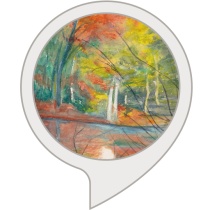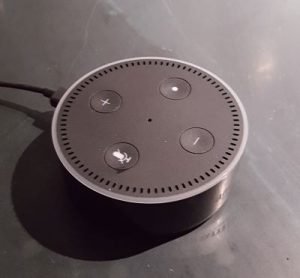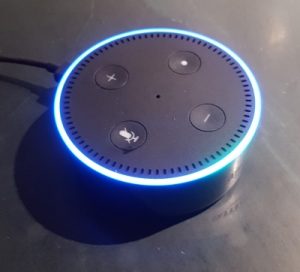
I’ve been thinking these last few days, once again, about language and pronunciation. This was triggered by working on some more Alexa skills to do with my books. For those who don’t know, I have such things already in place for Half Sick of Shadows, Far from the Spaceports, and Timing. That leaves the Bronze Age series set in Kephrath, in the hill country of Canaan. And here I ran into a problem. Alexa does pretty well with contemporary names – I did have a bit of difficulty with getting her to pronounce “Mitnash” correctly, but solved that simply by changing the spelling of the text I supplied. If instead of Mitnash I wrote Mitt-nash, the text-to-speech engine had enough clues to work out what I meant.

So I took a step back, did some investigation, and found that you can define the pronunciation of unusual words by using symbols from the phonetic alphabet. Instead of trying to guess how Alexa might pronounce Giybon, or Makty-Rasut, or Ikaret, I can simply work out what symbols I need for the consonants and vowels, and provide these details in a specific format. Instead of Mitnash, I write mɪt.næʃ. Ikaret becomes ˈIk.æ.ˌɹɛt.
So that solved the immediate problem, and over the next few days my Alexa skills for In a Milk and Honeyed Land, Scenes from a Life, and The Flame Before Us will be going live. Being slightly greedy about such things, of course I now want more! Ideally I want the ability to set up a pronunciation dictionary, so that I can just set up a list of standard pronunciations that Alexa can tap into at need – rather like having a custom list of words for a spelling checker. Basically, I want to be able to teach Alexa how to pronounce new words that aren’t in the out-of-the-box setup. I suspect that such a thing is not too far away, since I can hardly be the only person to come across this. In just about every specialised area of interest there are words which aren’t part of everyday speech.

But also, this brought me into contact with the perennial issue of UK and US pronunciation. Sure, a particular phonetic symbol means whatever it means, but the examples of typical words vary considerably. As a Brit, I just don’t pronounce some words the same as my American friends, so there has to be a bit of educated guesswork going into deciding what sound I’m hoping for. Of course it’s considerably more complicated than just two nations – within those two there are also large numbers of regional and cultural shifts. And of course there are plenty of countries which use English but sound quite different to either “standard British” or “standard American”.
